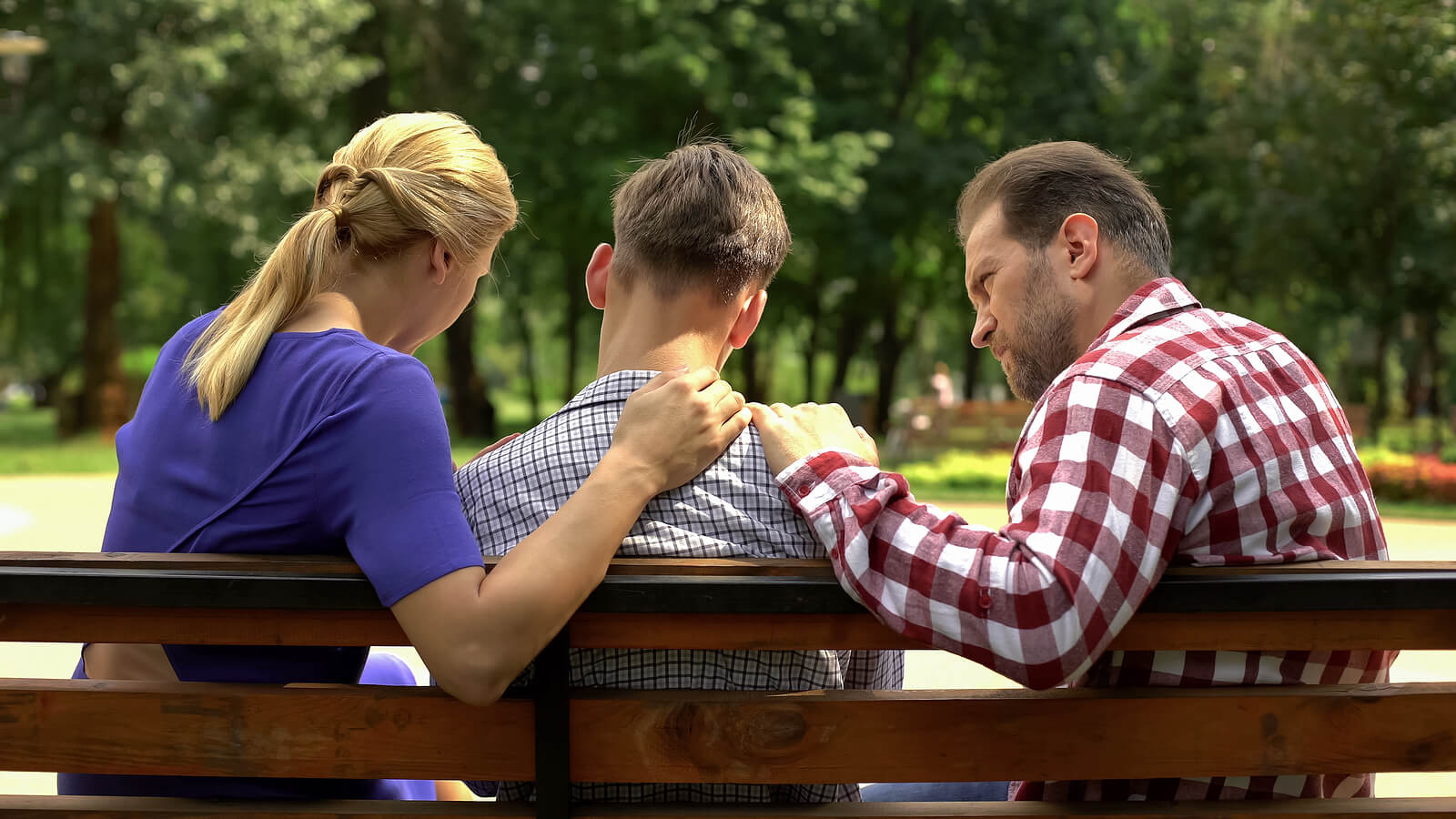The holiday season is often seen as a time for joy, celebration, and family gatherings. However, for many teens, particularly those who have experienced trauma, this time of year can bring added stress, intense emotions, and a sense of isolation. The sights, sounds, and expectations of the holidays can serve as reminders of past pain, making it difficult for teens to fully participate in festivities. As a parent, it can be heartbreaking to watch your child struggle, but there are effective ways you can support your teen during this challenging time. Incorporating trauma therapy into their support system can provide them with tools to process their feelings and navigate the holidays more comfortably.
Here are some key strategies from a trauma therapist for helping your teen cope with trauma during the holidays.

How To Help Your Teen Cope With Trauma During The Holidays
1. Acknowledge Their Feelings
Teens who have experienced trauma may feel a range of emotions, from sadness to anger or even numbness. These emotions may seem out of place while there are celebrations happening, leading them to feel misunderstood or even guilty for not “enjoying” the season. One of the most important things you can do as a parent is to acknowledge and validate their feelings.
Let them know that it’s okay to feel the way they do. You might say something like, “I know this time of year is hard for you, and it’s okay to be feeling sad. I’m here for you no matter what.” Validating their emotions creates a safe space for your teen to express themselves and reminds them they’re not alone in their experience. Validation will also help your teen maintain healthy emotion regulation.
2. Be Flexible with Expectations
The holidays come with many expectations – from family traditions to social gatherings, there’s often pressure to be happy, outgoing, and “in the spirit.” However, for a teen dealing with trauma, these expectations can feel overwhelming or even triggering. If your teen isn’t up for participating in all the usual activities, it’s important to be flexible and adjust your plans accordingly.
This might mean opting out of certain events, scaling back on the number of guests at holiday parties, or even rethinking your family’s holiday traditions. Instead of forcing participation, try to create new, low-pressure traditions that focus on connection and relaxation, rather than obligation. For example, a cozy movie night or a quiet walk together might be more comforting than a large holiday gathering.
3. Provide a Sense of Stability
During times of trauma, the world can feel unpredictable and out of control. The holiday season, with its increase in social events and disruptions to routine, may intensify this sense of instability for a teen. One of the most powerful ways you can support your child is by providing as much consistency as you can.
Maintain regular routines where possible, such as set meal times or consistent bedtimes. If there are disruptions to their schedule, like family events or travel, give them plenty of notice and reassure them that things will return to normal soon. Knowing what to expect and having a stable base can help reduce anxiety and create a sense of comfort.
4. Offer Emotional and Physical Support
Teens dealing with trauma often struggle with managing their emotions. They may have a difficult time expressing themselves verbally, or they may withdraw altogether. In these moments, your physical presence and emotional support can make all the difference.
Small gestures of affection, such as a hug or a reassuring touch, can help provide comfort and security. If your teen isn’t in the mood for physical affection, offering quiet support – sitting with them, letting them talk when they’re ready, or simply being there without judgment – can show them that you’re available when they need you. Be patient and avoid pushing them to talk or participate if they’re not ready; your being present is a form of support in itself.

5. Encourage Healthy Coping Mechanisms
The holidays can trigger intense emotions for teens who are navigating trauma. Encouraging healthy ways to cope with those emotions is important. If your teen is open to it, you can help them develop strategies such as journaling, mindfulness, or creative expression (art, music, etc.) to process their feelings.
If your teen is struggling to manage their emotions, suggest they take breaks from holiday activities to engage in calming activities. Sometimes, a walk outside or a few minutes of deep breathing can help reset their mood. Offer to engage in these activities with them if it feels right, but don’t force them.
6. Create a Safe Space for Conversations
Holidays can bring up difficult memories, and for a teen with trauma, that may feel emotionally overwhelming. As a parent, it’s important to create a safe space where your teen feels comfortable talking about their feelings or past experiences. Let them know that they can share anything with you, without fear of judgment or punishment.
Sometimes, trauma survivors may want to talk about their experiences but don’t know how to start the conversation. If that’s the case, simply asking open-ended questions like “How are you feeling today?” or “Is there anything you want to talk about?” can gently open the door for communication. If your teen doesn’t want to talk, don’t push them. Just let them know that you’re available whenever they feel ready to share.
7. Seek Professional Help if Needed With Trauma Therapy
In some cases, the trauma your teen has experienced may require more than just familial support. If your teen is struggling significantly during the holidays or showing signs of depression, anxiety, or other mental health concerns, it may be helpful to seek professional support. At DBT of South Jersey, a therapist who specializes in trauma can offer strategies and coping mechanisms that are tailored to your teen’s needs.
Seeking help doesn’t mean you’ve failed as a parent; in fact, it shows that you’re committed to supporting your teen’s well-being in the best way possible. Encourage your teen to see a therapist if they’re open to it, or consider family therapy as a way to navigate the challenges together.
8. Focus on Gratitude and Self-Care
During the holidays, it’s easy to get caught up in all the craziness, but making time for gratitude and self-care can help you and your teen cope with the stress and slow down. Encouraging your teen to increase gratitude practices can help increase balance to further promote distress tolerance of any unwanted emotions. Something as small as noticing gratitude for a cozy, warm blanket to wrap myself in can create a small moment of pleasant emotions.
Engage in self-care activities together, whether it’s relaxing with a favorite book, engaging in a creative project, or simply resting. Acknowledging small moments of joy, even in the midst of trauma, can help in healing.
Supporting Your Teen Through The Holidays
The holiday season can be difficult for teens who are coping with trauma, but with the right support, it is possible to navigate this time in a way that promotes healing and connection. By acknowledging their feelings, balancing consistency and flexibility, and encouraging healthy coping strategies, parents can help their teens during this emotionally charged time. Above all, remember that trauma healing is a journey, and providing your teen with a loving, supportive environment will make all the difference as they move forward.

Support Your Teen With Trauma Therapy in South Jersey
If your teen is struggling with trauma during the holidays, professional trauma therapy can provide the tools and support they need to cope with difficult emotions. With the right guidance from our team of skilled trauma therapists at DBT of South Jersey, your teen can learn to manage holiday stress and find healing in a safe, supportive environment. Supporting their emotional well-being during this time can help foster resilience and strengthen their family connection. Follow these three simple steps to get started:
- Book a call to speak with our intake coordinator to see if trauma therapy is right for your teen.
- Your teen will begin meeting with a skilled trauma therapist to cope.
- Start seeing positive changes in your teen during the holidays!
Other Services Offered at DBT of South Jersey
At DBT of South Jersey, we offer a wide range of therapeutic services to support your mental health journey. Specializing in Dialectical Behavior Therapy (DBT), we help individuals manage intense emotions, build healthy relationships, and develop effective coping strategies. In addition to DBT, we provide individual counseling, therapy for teens and children, trauma therapy, therapy for OCD and anxiety, therapy for anxiety, sadness, and self-doubt, as well as couples and family therapy. We are also proud to offer LGBTQIA+ affirmative therapy, veterans services, holistic healing, Reiki, and Accelerated Resolution Therapy (ART) to help clients heal from trauma and emotional distress. Whether you’re navigating personal challenges or looking to enhance your well-being, our compassionate team of therapists is here to help you create the life you deserve.




